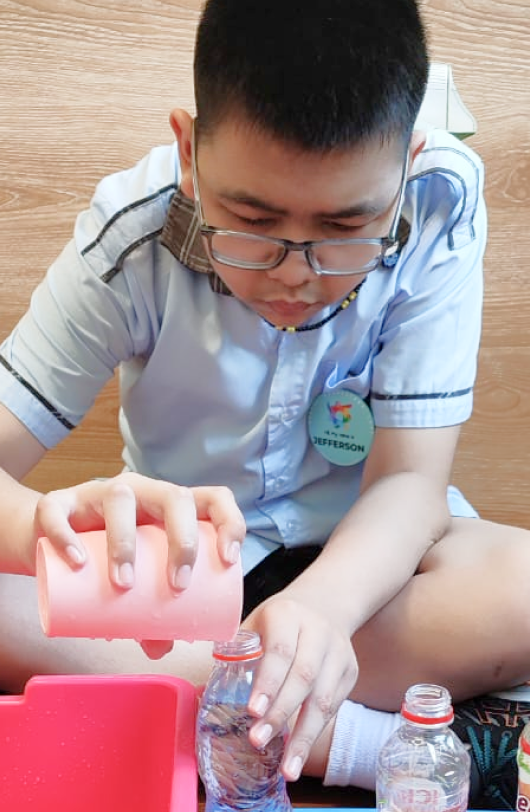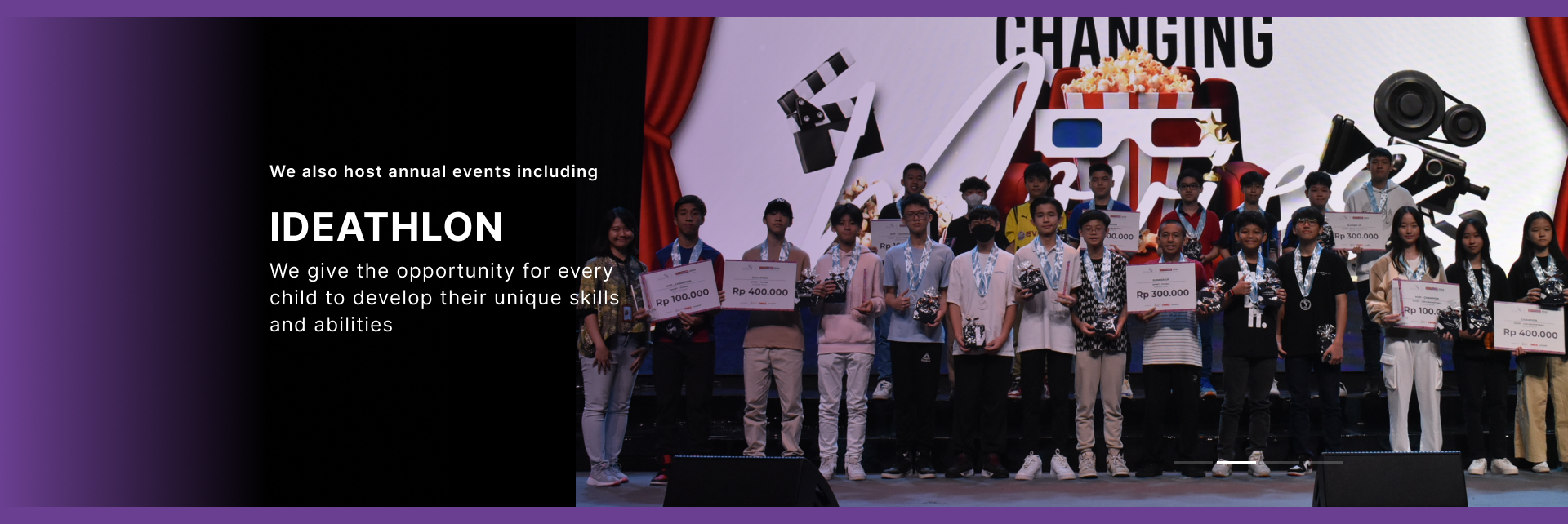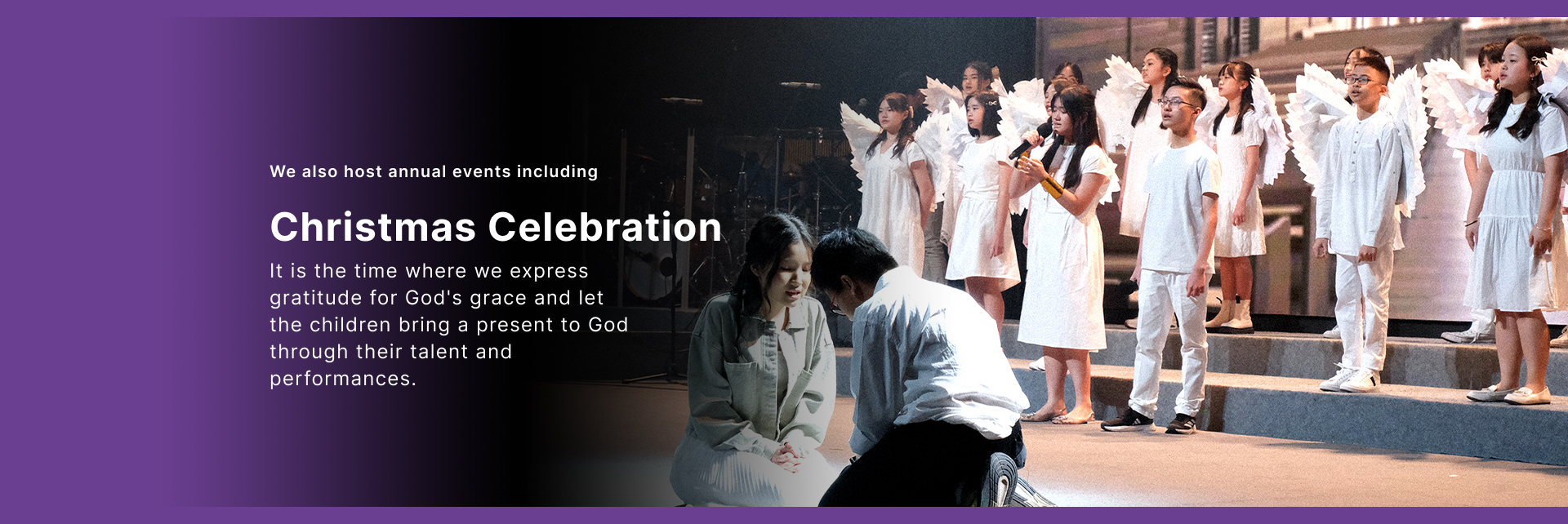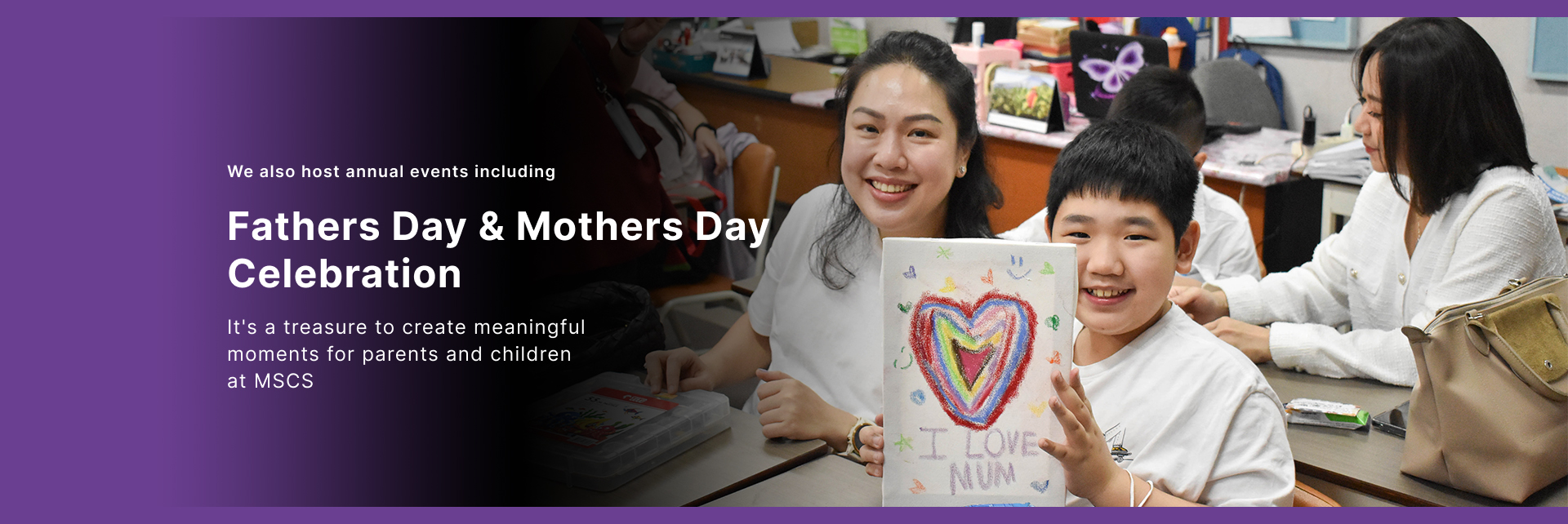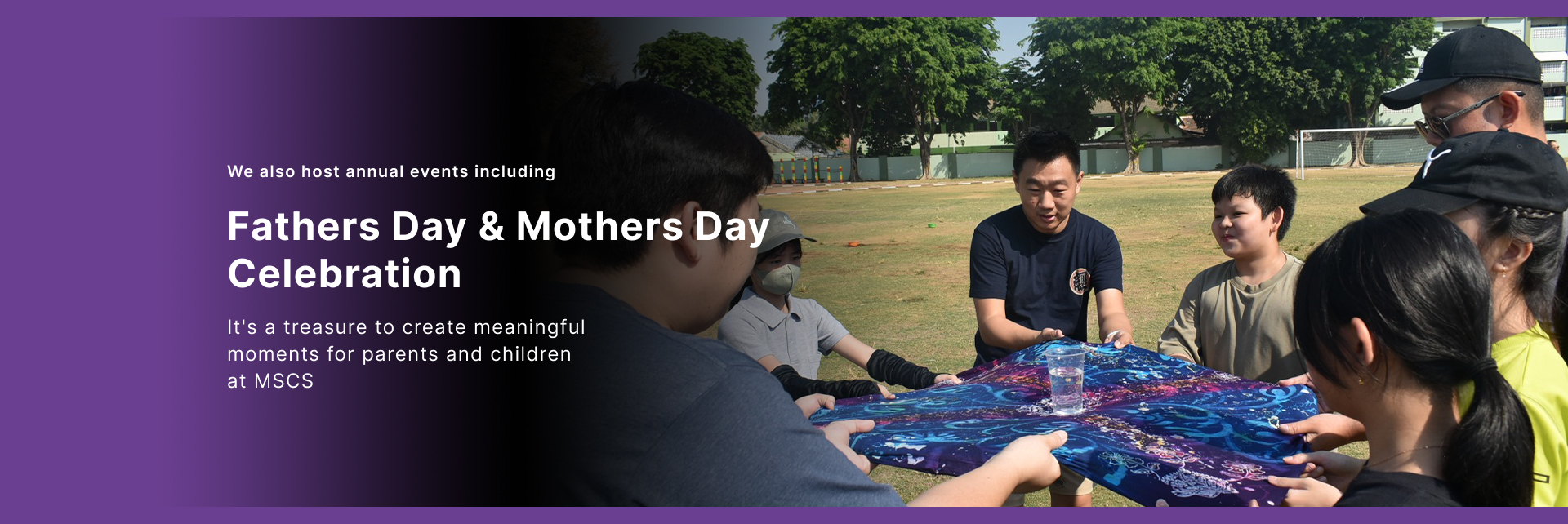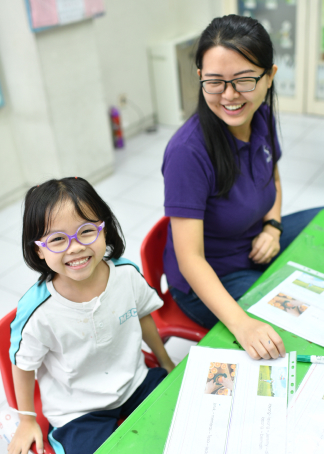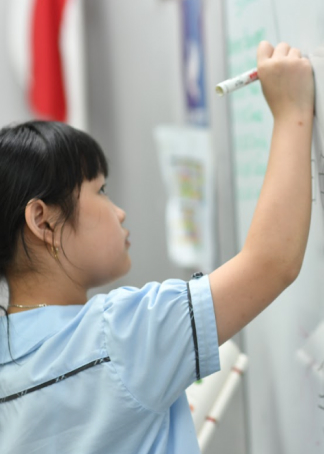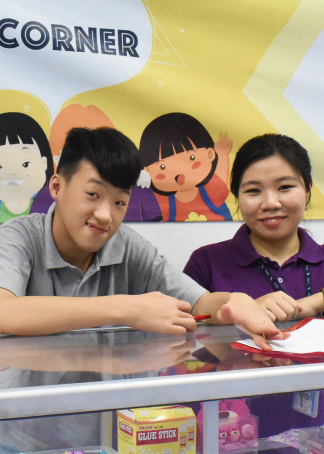
The SEP Department gives high priority to the use of Indonesian as the language for conversations and teaching instructions, with a usage rate of 90%. This helps the students to focus and master their learning. Additionally, instead of immersion, neurodivergent students will learn English specifically through vocabulary and daily conversation applications.
Furthermore, we offer coherent, systematic, and regularly evaluated behavioral interventions. Establishing effective communication and forming a strong team with parents through parent involvement activities, support groups, focus group discussions, and home visits is a crucial step in helping every neurodivergent student fulfill their purpose, as God called them to, in life.

